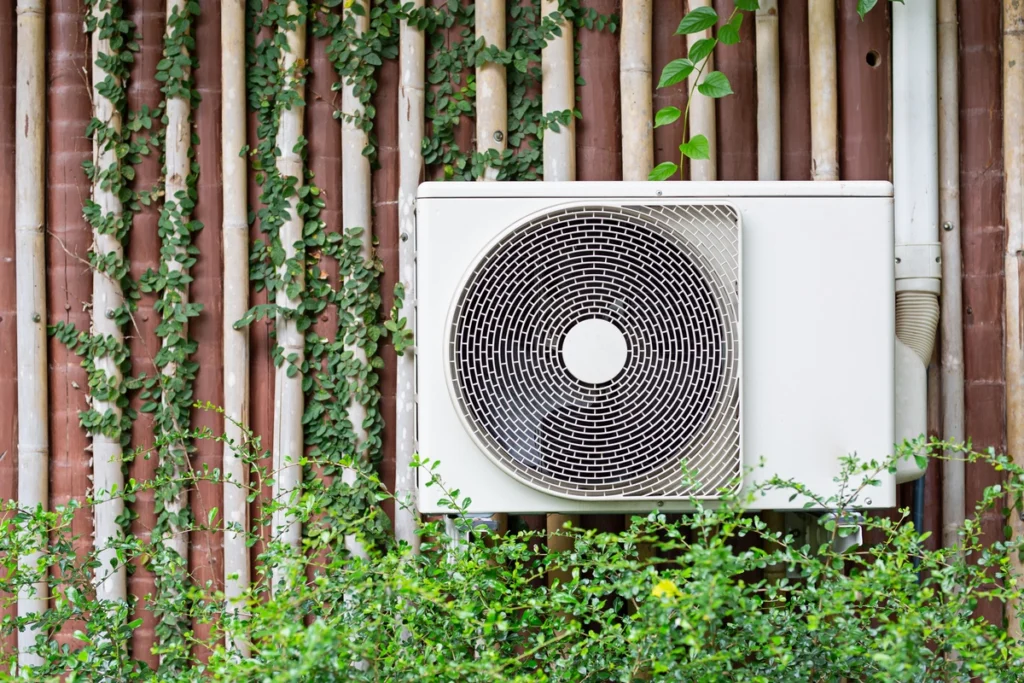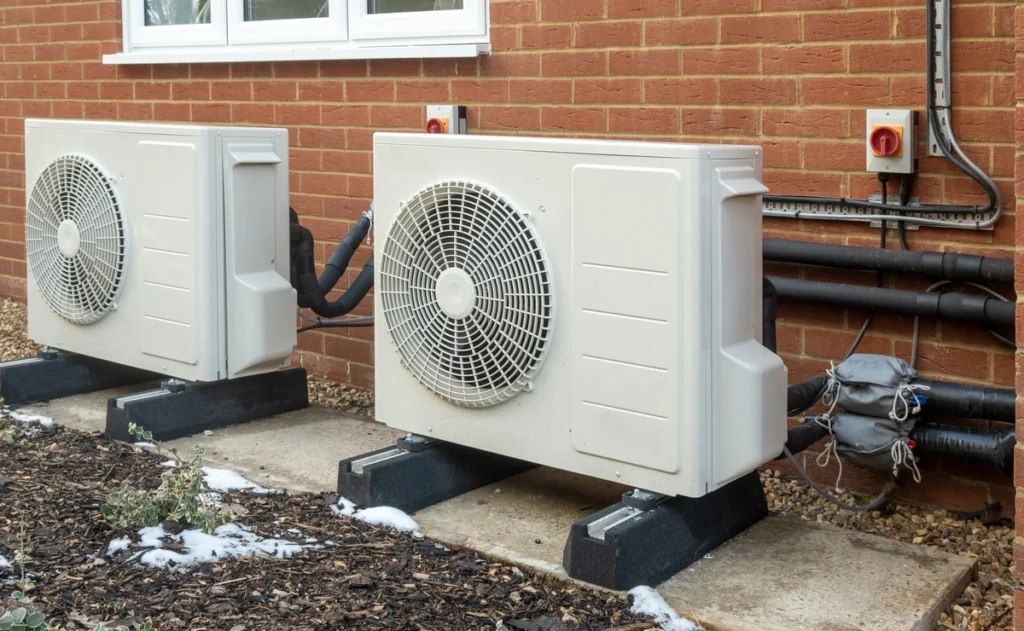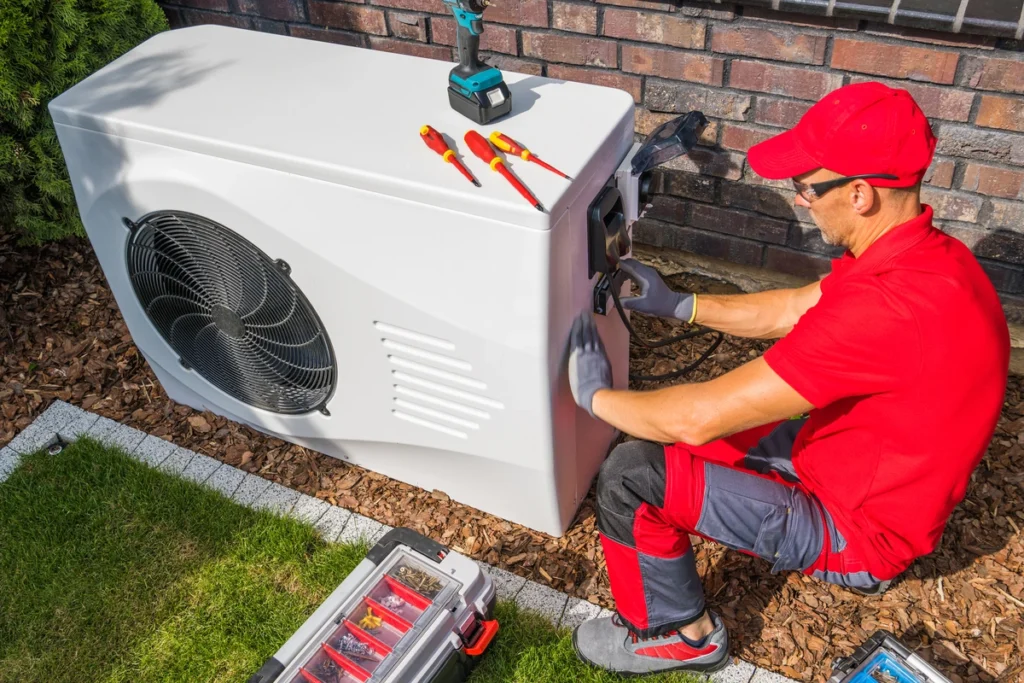Investing in a new heat pump can significantly enhance your home’s comfort and energy efficiency. However, understanding the associated costs is essential before making a decision. Whether you’re looking to upgrade your heating system or considering a heat pump for the first time, this guide will help you understand the costs involved. Here’s what we’ll cover in this post:
- What is a heat pump, and why choose one?
- Factors that impact heat pump cost
- Installation and maintenance costs
🤔 What is a Heat Pump, and Why Choose One?

A heat pump is an energy-efficient system that provides both heating and cooling for your home by transferring heat between the inside and outside. Unlike traditional HVAC systems, heat pumps excel in maintaining year-round comfort without skyrocketing energy bills.
Types of Heat Pumps and Their Price Ranges
The type of heat pump you choose has a substantial impact on cost. Here’s a quick overview of the most common types:
- Air-Source Heat Pumps ($4,000–$8,000): Popular for homeowners, these systems heat your home by pulling warmth from outdoor air in winter and reverse for cooling in summer.
- Geothermal Heat Pumps ($10,000–$30,000): Highly efficient, these systems draw energy from stable underground temperatures and, despite higher upfront costs, deliver significant long-term energy savings.
- Ductless Mini-Split Heat Pumps ($2,000–$7,000 per unit): Perfect for homes without ductwork, these compact, energy-efficient units are great for smaller spaces or as supplemental heating.
💸 5 Factors That Impact Heat Pump Cost

Several factors influence the overall cost of a heat pump system. Here’s a breakdown to help you understand what drives the price:
1. Size of Your Home
The size of your home plays a major role in determining the cost of a heat pump. Larger homes require heat pumps with greater capacity, or in some cases, multiple units, to ensure air is circulated effectively throughout the entire space. This increases both the equipment and installation costs. To avoid overspending or purchasing an underperforming system, a professional heating load calculation is essential. This calculation evaluates your home’s specific heating and cooling needs, taking into account factors like square footage, insulation, and climate, to determine the ideal heat pump size for your home.
2. Type of Heat Pump
There are several types of heat pumps available, each with its own cost range and efficiency level. Air-source heat pumps are the most common and tend to be more affordable upfront. Water-source and ground-source (also known as geothermal) heat pumps are highly efficient, but they come with significantly higher installation costs due to the extensive work required to access water bodies or drill into the ground. While geothermal systems can save more energy and provide lower utility bills over time, the initial investment is much higher compared to air-source systems. Choosing the right type of heat pump depends on your budget, location, and long-term energy goals.
3. Efficiency Ratings (SEER and HSPF)
Heat pump efficiency is measured using two key ratings: SEER (Seasonal Energy Efficiency Ratio) for cooling and HSPF (Heating Seasonal Performance Factor) for heating. Models with higher efficiency ratings typically come with a higher upfront price tag, but they offer significant energy savings over time, reducing your utility costs. While it may be tempting to opt for a lower-cost model, investing in a high-efficiency system can pay off in the long run, especially in regions with extreme weather conditions where heating and cooling usage is high.
4. Installation Complexity
The complexity of the installation process can greatly influence the overall cost of your heat pump system. Homes that require extensive ductwork modifications, electrical upgrades, or adjustments to existing HVAC systems will face higher installation expenses. Older homes, in particular, may need additional work to accommodate a modern heat pump system. It’s important to work with experienced professionals who can assess your home’s needs and provide accurate estimates for installation, ensuring a smooth and cost-effective process.
5. Additional Features
Optional features can enhance the functionality and performance of your heat pump system, but they also add to the overall cost. Features such as smart thermostats allow you to control your system remotely and optimize energy use, while zoning systems enable customized temperature settings in different areas of your home. Enhanced filtration systems improve indoor air quality, which is particularly beneficial for households with allergies or respiratory concerns. While these features are not essential, they can significantly improve your comfort and overall satisfaction with your heat pump system.
👉 What to Expect in Installation and Maintenance Costs

While the heat pump itself accounts for the majority of your expenses, don’t overlook installation and maintenance costs.
Installation Costs
The cost of professionally installing a new HVAC system typically ranges from $3,000 to $7,000, depending on the complexity of the installation. Factors that can influence these costs include the size of your home, the type of HVAC system you choose, and the labor required for the job. For older homes, additional upgrades may be necessary, such as modifying existing ductwork to accommodate the new system or rewiring your electrical setup to meet modern standards. These extra steps can add to the overall cost but are essential for ensuring the system operates safely and efficiently.
Maintenance Costs
Maintaining your HVAC system is crucial for keeping it running smoothly and avoiding costly repairs down the line. On average, annual maintenance costs range from $150 to $300 per year, which typically covers routine services such as cleaning, inspection, and minor adjustments. Regular tune-ups not only help maximize the efficiency of your system but also extend its lifespan, ensuring you get the most out of your investment. Skipping maintenance can lead to reduced performance and potential breakdowns, so scheduling yearly check-ups is highly recommended.
🏡 Heat Pump Costs
When it comes to investing in a heat pump, you want a team you can trust to deliver quality, expertise, and value—and that’s exactly what we provide at Palmetto Air Conditioning. With over 20 years of experience serving Lexington, SC homeowners, we’re committed to making your heating upgrade seamless and affordable. From expert installation to transparent pricing, flexible financing, and 24/7 support, we prioritize your comfort every step of the way.
Ready to take the next step? Contact us today to schedule a consultation and discover how we can enhance your home’s efficiency and comfort with a heat pump tailored to your needs!
